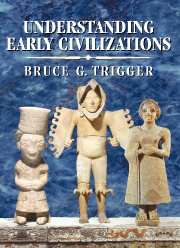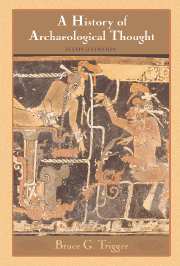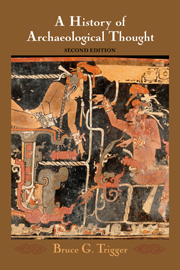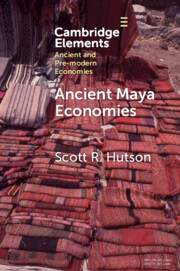Understanding Early Civilizations
This book offers the first detailed comparative study of the seven best-documented early civilizations: ancient Egypt and Mesopotamia, Shang China, the Aztecs and adjacent peoples in the Valley of Mexico, the Classic Maya, the Inka, and the Yoruba. Unlike previous studies, equal attention is paid to similarities and differences in their sociopolitical organization, economic systems, religion, and culture. Many of this study's findings are surprising and provocative. Agricultural systems, technologies, and economic behaviour turn out to have been far more diverse than was expected. These findings and many others challenge not only current understandings of early civilizations but also the theoretical foundations of modern archaeology and anthropology. The key to understanding early civilizations lies not in their historical connections but in what they can tell us about similarities and differences in human behaviour.
- Comprehensive - first comprehensive study of how early civilizations worked
- Comparative - a major contribution to the comparative study of human behavior
- Challenging - calls into question conventional understandings of how a comprehensive theory of social behavior can be constructed
Reviews & endorsements
"This is a major work of anthropological archaeology. Its comprehensiveness of theme, readiness to pursue profound if difficult and sometimes not readily answerable questions, and impressive control of a wide range of sources, reflect distinguished thought and dedicated effort. It stands out among comparative approaches to early human societies for its breadth and systematicity...This is as good a place as there is for the next generation of scholars to obtain a solid introduction to the intellectual substance of a field of great breadth and promise. The book should act as a powerful stimulant to the revitalization of comparative studies." Robert McC. Adams, University of California at San Diego, The International History Review
"Its comprehensiveness of theme, readiness to pursue profound if difficult and sometimes not readily answerable questions, and impressive control of a wide range of sources, reflect distinguished thought and dedicated effort. ...a major achievement." The International History Review
"Understanding Early Civilizations is the capstone of Trigger's remarkable archaeological career. No archaeologist is better qualified to undertake the challenging task of comparing seven ancient civilizations in such exhaustive detail. He has succeeded brilliantly. Trigger's effortless command of the literature and dispassionate approach to the complex theoretical issues ensure that Understanding Early Civilizations will become a classic. This is, quite simply, a definitive work." Brian Fagan, University of California, Santa Barbara
"Long acknowledged as the premier historian of the discipline of archaeology in the Anglophone world, Bruce Trigger now must be recognized as its most knowledgeable authority of early civilizations. Understanding Early Civilizations presents a highly specific and richly detailed comparative analysis of seven 'early civilizations' or early class-stratified states that are viewed as essentially independent examples of the development of complex society. His study is written in the grand evolutionist tradition that emphasizes similarities in the social, economic, and cultural structures of these early civilizations despite their idiosyncratic or specific manifestations. Trigger's study is monumental and magisterial. It is a work to treasure and digest for years to come." Philip L. Kohl, Wellesley College
Product details
No date availableAdobe eBook Reader
9781316022627
0 pages
0kg
This ISBN is for an eBook version which is distributed on our behalf by a third party.
Table of Contents
- Part I. Introduction:
- 1. Rationalism and relativism
- 2. Comparative studies
- 3. Defining 'early civilization'
- 4. Evidence and interpretation
- Part II. Sociopolitical Organization:
- 5. Kingship
- 6. States: city and territorial
- 7. Urbanism
- 8. Class systems and social mobility
- 9. Family organization and gender roles
- 10. Administration
- 11. Law
- 12. Military organization
- 13. Sociopolitical constants and variables
- Part III. Economy:
- 14. Food production
- 15. Land ownership
- 16. Trade and craft specialization
- 17. Appropriation of wealth
- 18. Economic constants and variables
- Part IV. Cognitive and Symbolic Aspects:
- 19. Conceptions of the supernatural
- 20. Cosmology and cosmogony
- 21. Cult
- 22. Priests, festivals, and the politics of the supernatural
- 23. The individual and the universe
- 24. Elite art and architecture
- 25. Literacy and specialized knowledge
- 26. Values and personal aspirations
- 27. Cultural constants and variables
- Discussion:
- 28. Culture and reason
- 29. Conclusion
- References
- Index.














